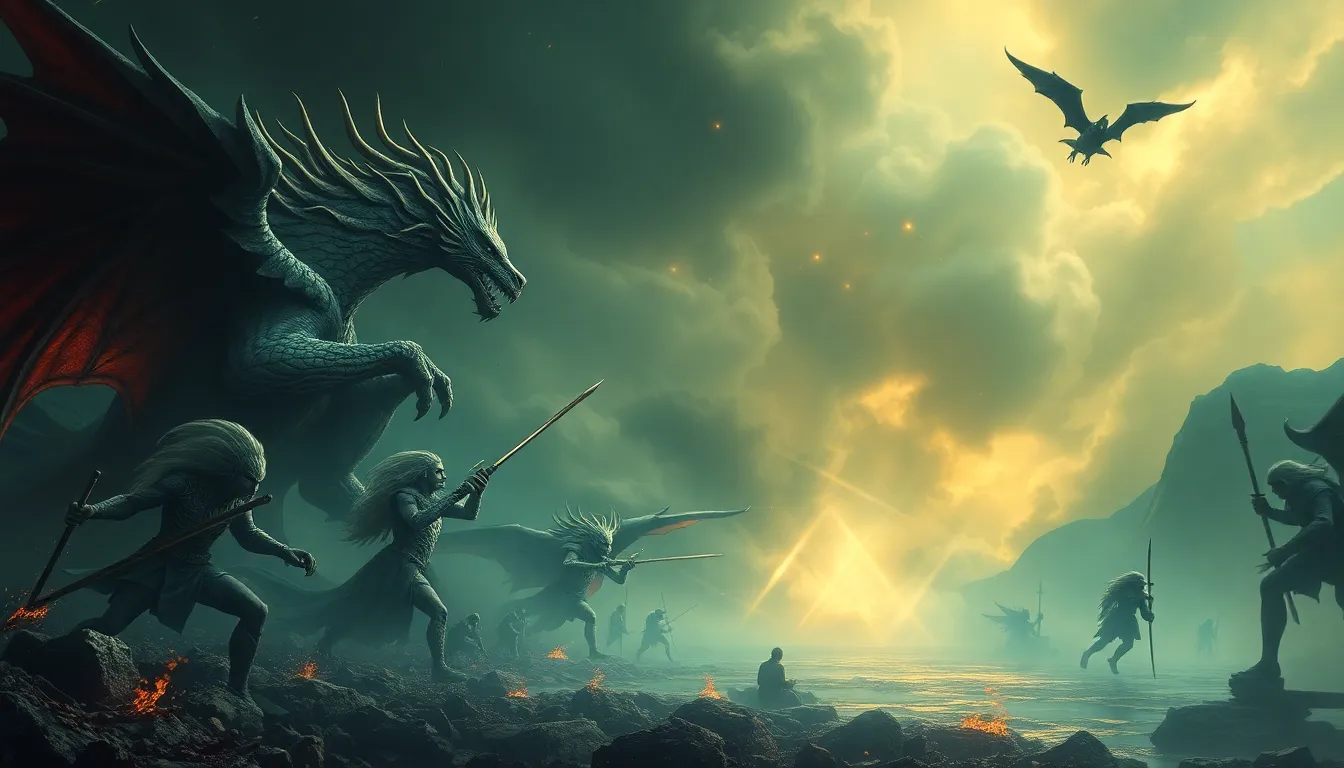From Myths to Legends: The Greatest Battles of All Time
Introduction: The Significance of Battles in Human History
Battles have played a crucial role in shaping cultures and civilizations throughout history. They are not merely violent confrontations but are often pivotal events that define the course of nations and the identities of peoples. The stories of these conflicts often transition from mythic tales, embellished and romanticized over time, to legendary accounts that echo through the ages. Understanding these battles helps us grasp the values, struggles, and aspirations of those who fought them.
The Origins of Mythical Battles: A Historical Perspective
Ancient texts and oral traditions provide a wealth of information about the origins of mythical battles. Many legendary conflicts have their roots in historical events, albeit embellished with mythological elements. Key battles in mythology include:
- The Trojan War: A tale of love, betrayal, and heroism, it has captivated audiences for centuries.
- Ragnarok: In Norse mythology, this apocalyptic battle symbolizes the end of an era and the beginning of a new one.
These accounts, while often exaggerated, reflect the values and beliefs of the societies that created them and serve as a bridge between history and mythology.
The Criteria for ‘Greatest’ Battles: What Defines a Legendary Conflict?
Determining the ‘greatest’ battles involves evaluating various factors that contribute to their legendary status. Key criteria include:
- Scale: The number of combatants and the geographical area affected can elevate a battle’s importance.
- Impact: The outcomes that shape political boundaries, cultural identities, and social structures are critical.
- Legacy: The lasting effects on future generations and the narratives that emerge from these conflicts.
Additionally, heroism and strategy play pivotal roles in historical narratives, often romanticizing the figures involved and their decisions during the chaos of battle.
The Battle of Marathon: A Clash of Ideologies
The Battle of Marathon (490 BCE) stands as a significant turning point during the Persian Wars. It was not just a military engagement; it represented a clash of ideologies between the democratic city-states of Greece and the autocratic Persian Empire. Key figures such as Miltiades and the Athenian hoplites employed innovative tactics, including the phalanx formation, to secure a stunning victory against a numerically superior force.
This battle was significant for democracy, as it demonstrated that a well-trained, motivated citizen army could defeat a vast imperial force, inspiring future generations to value civic participation in governance.
The Siege of Troy: From Myth to History
The Siege of Troy, immortalized in Homer’s epics, combines myth with historical realities. While the precise events may be shrouded in legend, archaeological evidence suggests that a conflict resembling the Trojan War did occur. The use of the famed Trojan Horse symbolizes cunning strategy and deception, which played crucial roles in warfare.
The implications of the Trojan War extend beyond the battlefield, influencing Greek culture profoundly. It shaped their literature, arts, and understanding of heroism, encapsulating the struggles and values of ancient Greek society.
The Battle of Hastings: The End of Anglo-Saxon Rule
The Battle of Hastings (1066) marked a decisive moment in English history, leading to the Norman Conquest. The conflict between William the Conqueror and Harold Godwinson resulted in the fall of Anglo-Saxon rule in England. The battle’s outcome had long-term effects, including the introduction of Norman culture and governance, which transformed English society.
William’s strategic use of feigned retreats and the battle’s pivotal moments are studied for their tactical brilliance, illustrating how leadership and military strategy can alter the course of history.
The Hundred Years’ War: A Legendary Struggle for the French Crown
The Hundred Years’ War (1337-1453) symbolizes a legendary struggle for the French crown between England and France. Within this protracted conflict, key battles such as Agincourt and Crécy stand out. These encounters showcased the evolution of military tactics, including the effective use of the longbow.
This war significantly contributed to the rise of national identity in both countries. The cultural implications were profound, as it fostered a sense of unity among the French and English peoples, ultimately shaping their respective nations.
World War II: The Epic Battles that Changed the Course of History
World War II (1939-1945) featured numerous pivotal battles that altered the global landscape. Key encounters included:
- Stalingrad: A brutal confrontation that marked the turning point on the Eastern Front.
- Midway: A decisive naval battle that shifted the balance of power in the Pacific.
- D-Day: The Allied invasion of Normandy, which played a critical role in liberating Western Europe from Nazi occupation.
The impact of these battles reverberated globally, reshaping geopolitics and societal structures in the post-war world.
The Role of Technology in Transforming Battlefields: From Ancient to Modern Warfare
The evolution of warfare tactics and weaponry has dramatically transformed battlefields throughout history. From the introduction of the chariot in ancient times to the use of tanks and aircraft in World War II, technology has played a crucial role in determining the outcomes of battles.
Key technological advancements include:
- Gunpowder: Revolutionized warfare, leading to the decline of armored knights.
- Artillery: Changed the dynamics of sieges and open-field battles.
- Communication Technologies: Enhanced coordination and strategy in military operations.
These innovations have not only influenced tactics but have also left a lasting legacy on military strategy and international relations.
Conclusion: The Lasting Legacy of Legendary Battles in Contemporary Society
The battles discussed throughout history continue to inspire literature, film, and culture. They serve as reminders of the complexities of human conflict, the bravery exhibited, and the consequences that arise from warfare. Understanding these legendary battles is essential for contemporary society, as they provide insights into human nature, national identities, and the importance of peace and diplomacy.
As we reflect on these historical conflicts, we recognize the importance of learning from the past to shape a more promising future, ensuring that the sacrifices made on these battlefields are never forgotten.




